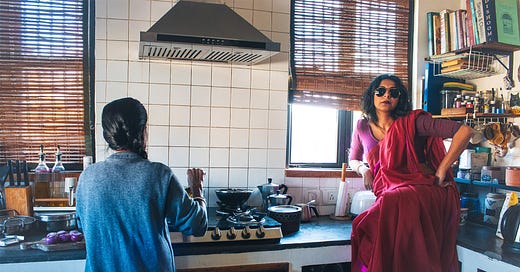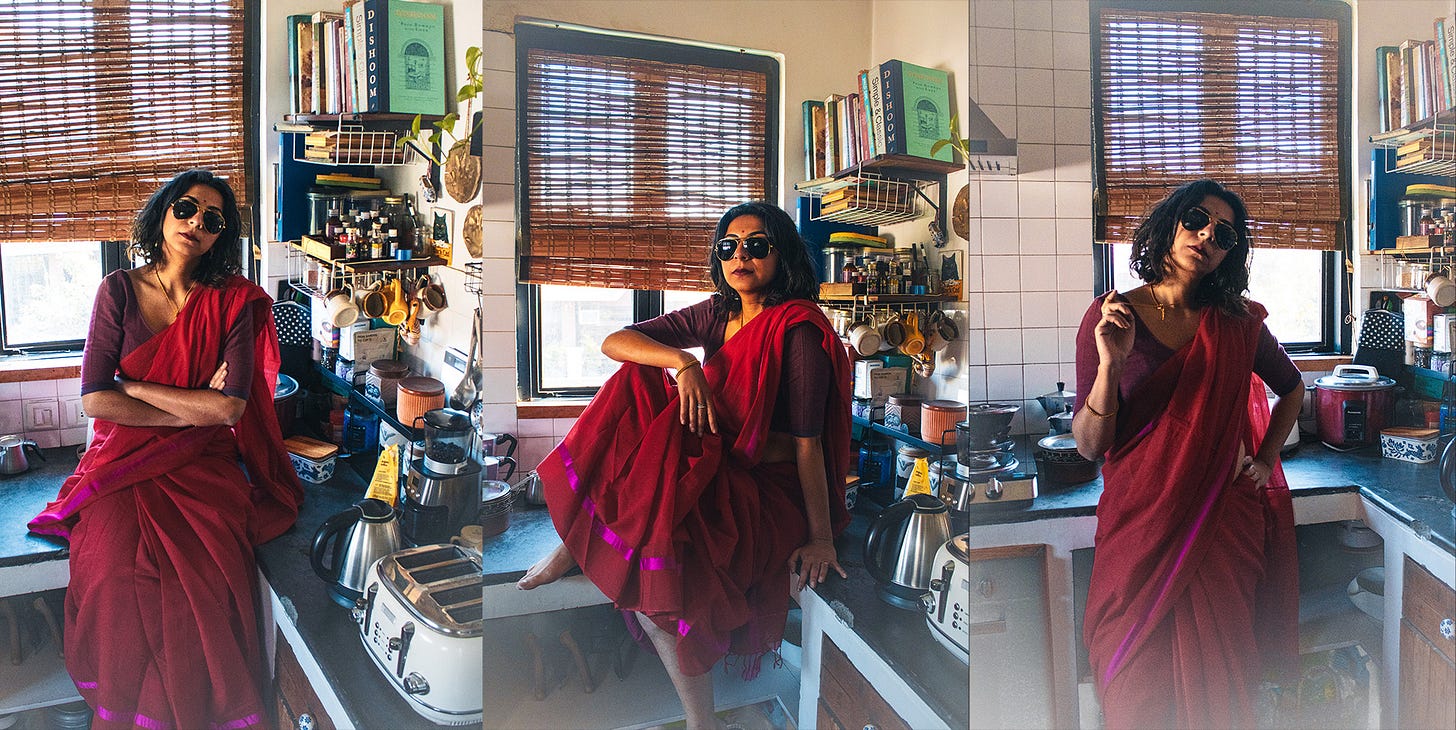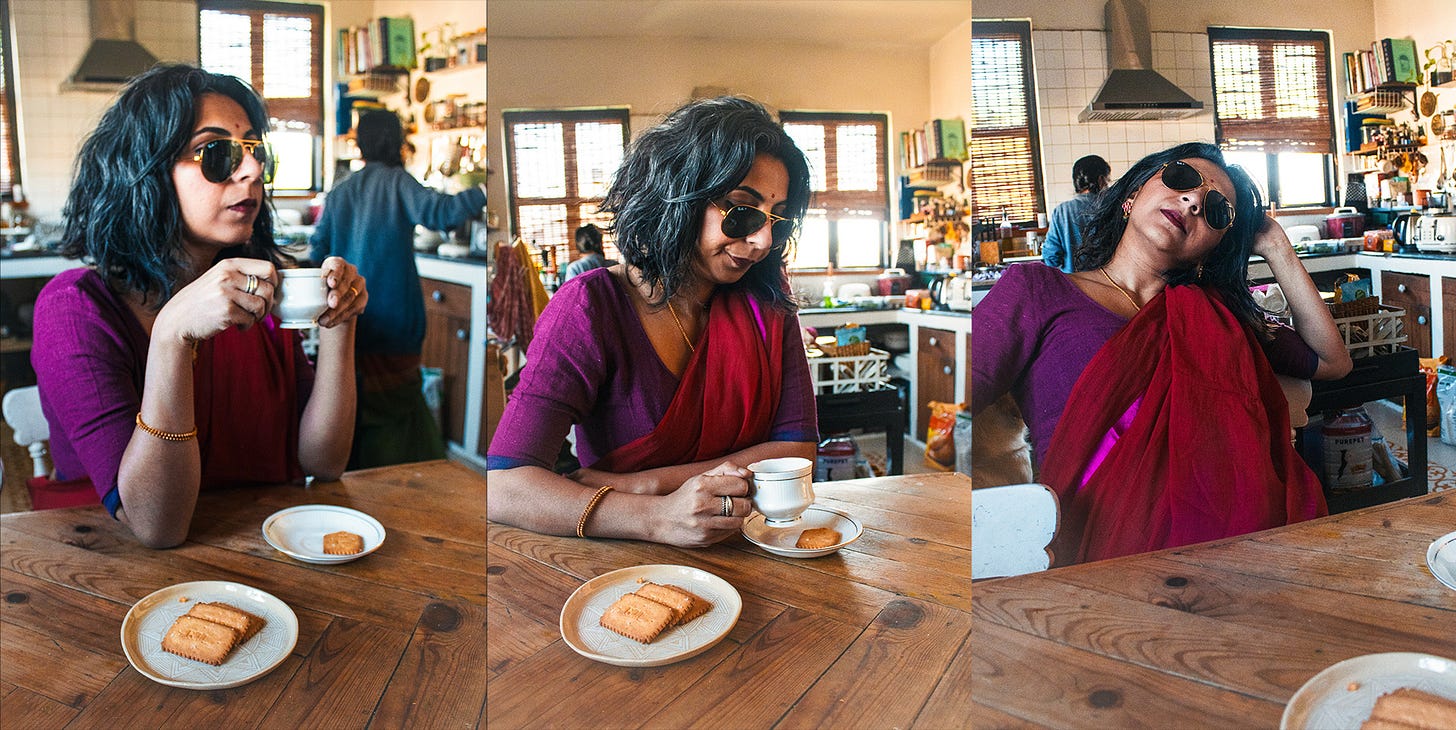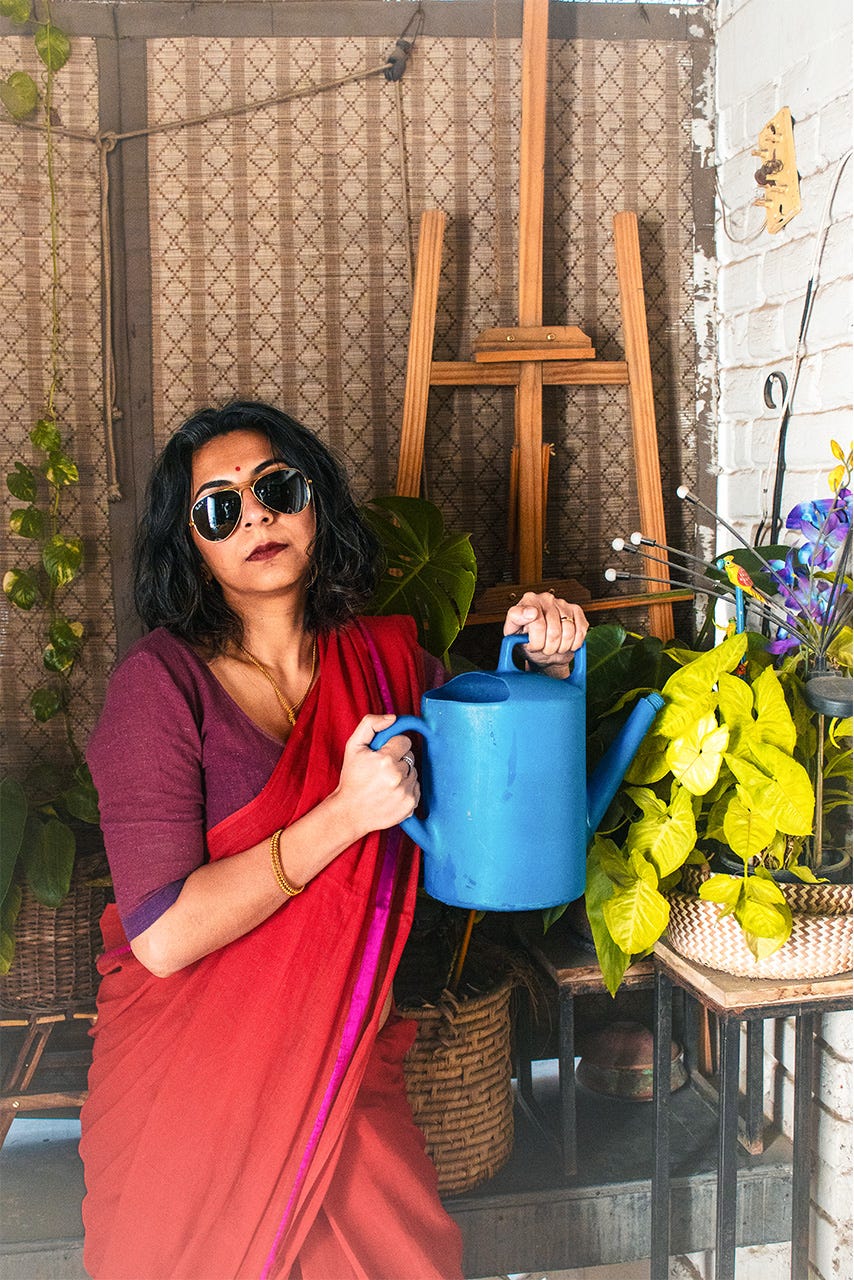Before women took to working full-time, their power and authority were exercised within the confines of their homes. Fondly called Bhabhi in most North Indian homes, the mistress of the house rules with an iron fist, plays good cop—bad cop, and is answerable to no one regarding decisions on how to run her home. Nothing gets done without Bhabhi’s knowledge or permission.
Bhabhi has been fetishised as a sexual being, documented in length in cinema as unpaid labour and revered as the woman who holds the family together. She is the glue that binds, the host who entertains and the woman who ensures your laundered clothes are kept in the correct pile in your cupboard.
After our marriage, when we returned to my husband's home in Delhi, our cook was surprised to find me in jeans. Her expression turned sour, disappointment lining her features. “You don’t look like a bride!” she exclaimed, genuinely shocked. “Where is your sindoor and bindi?” She tsk tsked and retreated to the kitchen. I ignored her.
But her comments played in my head. I had fought so hard to break away from expectations placed on me, and yet I found myself sucked back into the same vicious cycle by staff members. Over time, I developed a reputation of being “unlike other Bhabhis.”
My husband runs our house. He decides the meals, orders the groceries, wakes up in the morning to get our daughter ready for school, makes her breakfast, packs her lunch, and drops her off at school. I am a late riser. I eat my breakfast quietly, get ready for work, and then head to my studio. I do not involve myself in the daily running of the house. I help when asked and cook when I feel like it.
Our staff have grown accustomed to this dynamic, although they don’t understand it. Even now, my cook tells me the meals she has been asked to prepare, as if ensuring I have agreed to it. Our home manager asks me to decide on the bed and home linen when it's time for a change. My husband may request more thorough cleaning, but it falls on deaf ears. It is only when I point things out that work gets done.
The more I fight to reject this stereotype, the harder it holds on to me. Bhabhi, they say lovingly – only a woman can make a house a home. You have what your husband doesn’t – they imply. So every now and then, I don the role relegated to me. I become a Bhabhi – the queen who rules with an iron fist.
Naqab (Mask) explores the many masks I wear as an Indian woman. It is my attempt to unravel, and discover my deep-seated conditioning, biases, strengths and weaknesses, one portrait at a time.
The project will span a year, with one portrait every week.
Head here for the entire series.
If you liked this project, please consider sharing or recommending my publication. It would immensely help a new writer like me reach a wider audience.
I would love to hear from you! Drop in a comment and let me know your thoughts.








Uff.....too sexy for your kitchen!😁
three cheers to Bhabhi. I love that corner of your kitchen !!!!